Hearing groups of boys go back to back to the soundtrack of Eskimo riddim. Listening to my favourite grime MCs through the fuzzy background of pirate radio. Discussing who spun who on the latest Lord of the Mics – long may the Wiley vs Kano clash live. This was the black British music I grew up with.
Those were the foundations of what we have now. And what we have now is one of the most successful periods black British music has ever seen in the UK. We have artists like Skepta, Stormzy, and Giggs with chart success. Black British artists are making moves in grime, rap, R&B, and everything in between, by being unapologetically themselves.
Black UK music is constantly evolving, and to celebrate this we spoke to eight black British artists and asked them what it means to them.


Wretch 32
Wretch 32 is and has been one of the most important voices in UK music. He has been on the scene since his days as a member of Combination Chain Gang and then The Movement, which included him, Scorcher, Ghetts, and Mercston. “I feel like I have been writing songs longer than I haven't,” he says. “I used to write in my mum's front room, and I would not just write raps or bars, I would write a record. It would have a concept – any song that had a 16-bar instrumental I had a song to.”
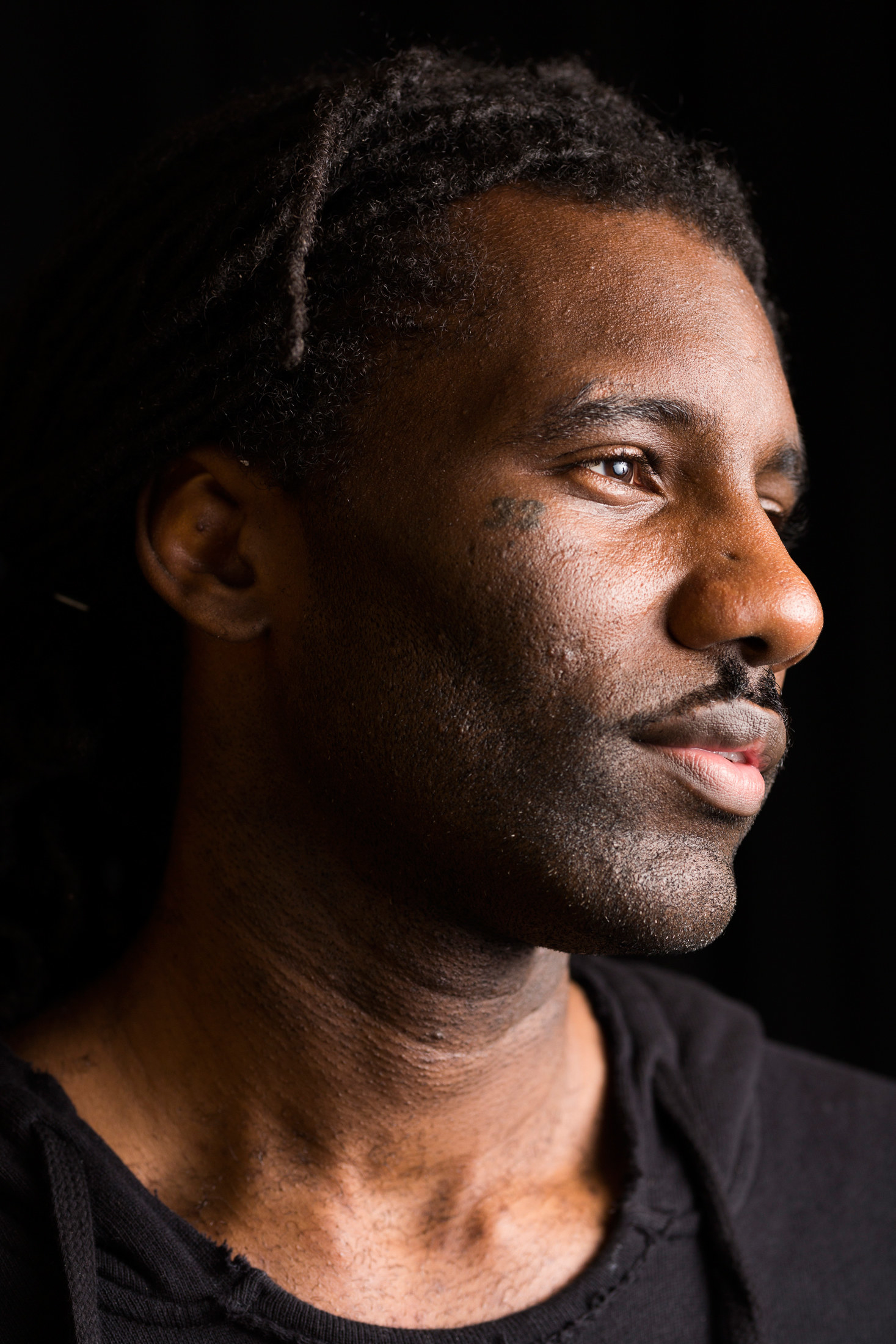
And it seems these years of writing have paid off. Wretch's talent when it comes to lyrics cannot be denied; he is a rapper's rapper. “I write music that is heartfelt, intellectual, and I would say moving. That can mean dancing on the dance floor, or actually feeling an emotion,” he says. “I think my album shows how versatile I am. I am not enclosed with my music. If I feel l like singing, I sing; if I felt like rapping, I rap. I do everything I feel like doing. Because if you're going to be in this industry you need to be comfortable in your own skin.”
Wretch lists Kano, Swiss (he wishes he'd written “Cry”), Avelino, Ghetts, J Hus, and Krept & Konan among the many artists he is a fan of. “UK music has always been great but the quality is so much better now. Everyone has got better. The music, the sonics, the engineering, the mix-downs, the writing – everything is better. That's why the light is on us: We are as close to flawless as it gets with our music.”
I ask him what he, as someone who has been in the game for a long time, thinks of the wave of new UK artists. “It's good to see new artists pick up from where we left off,” he says. “The people who come second get to come first better. They have seen what's happened before them. It's good to see younger versions of yourself. They have learnt new things, and now they are able to be fearless. When I started music I made a lot of mistakes out of lack of knowledge. Artists now understand what road they can walk on, and also they know what to do and what not to do.”

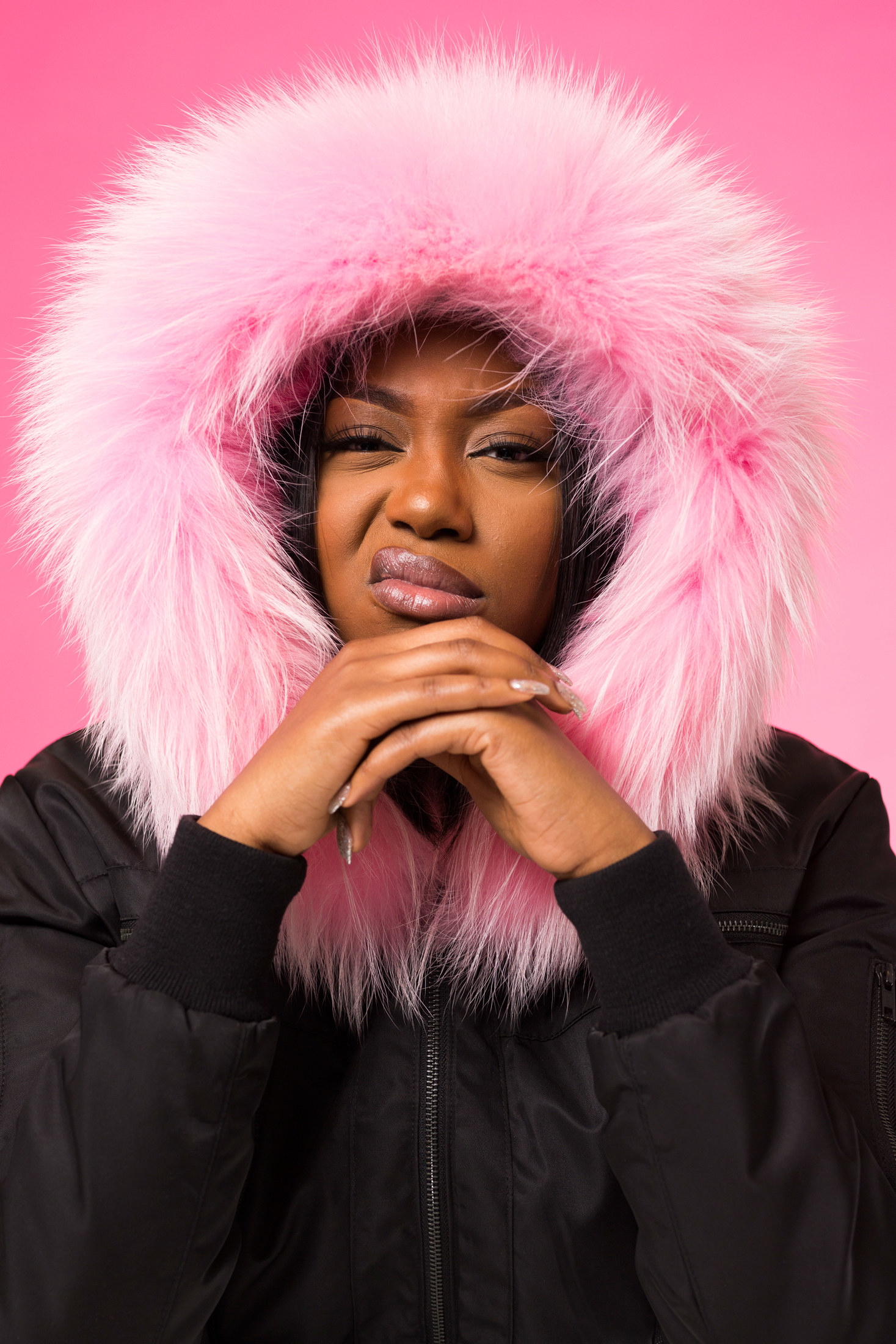
Ms Banks
Fitted black jeans, black tee, and a smile that reveals her gold tooth: Ms Banks has a swag that belongs to black London girls – south London girls, to be exact. “I am from South, and growing up, we were a little rough around the edges. We would come through in kicks, jeans, a bag from H&M, a New Era hat, and a gold tooth. We had a look, and that reflects in my music. It influences my sound.”
Ms Banks, who was introduced to many people through her impressive Fire in the Booth freestyle, has come a long way from the 11-year-old girl who wrote: “T to the Y to the R to the A / When I'm on the mic don't ram, don't play / If you don't like me that's OK / I'm going to beat you anyway.”
“OMG, my first bar was so wack. I don't know who I waring at 11,” she jokes after she recites the rap to me.
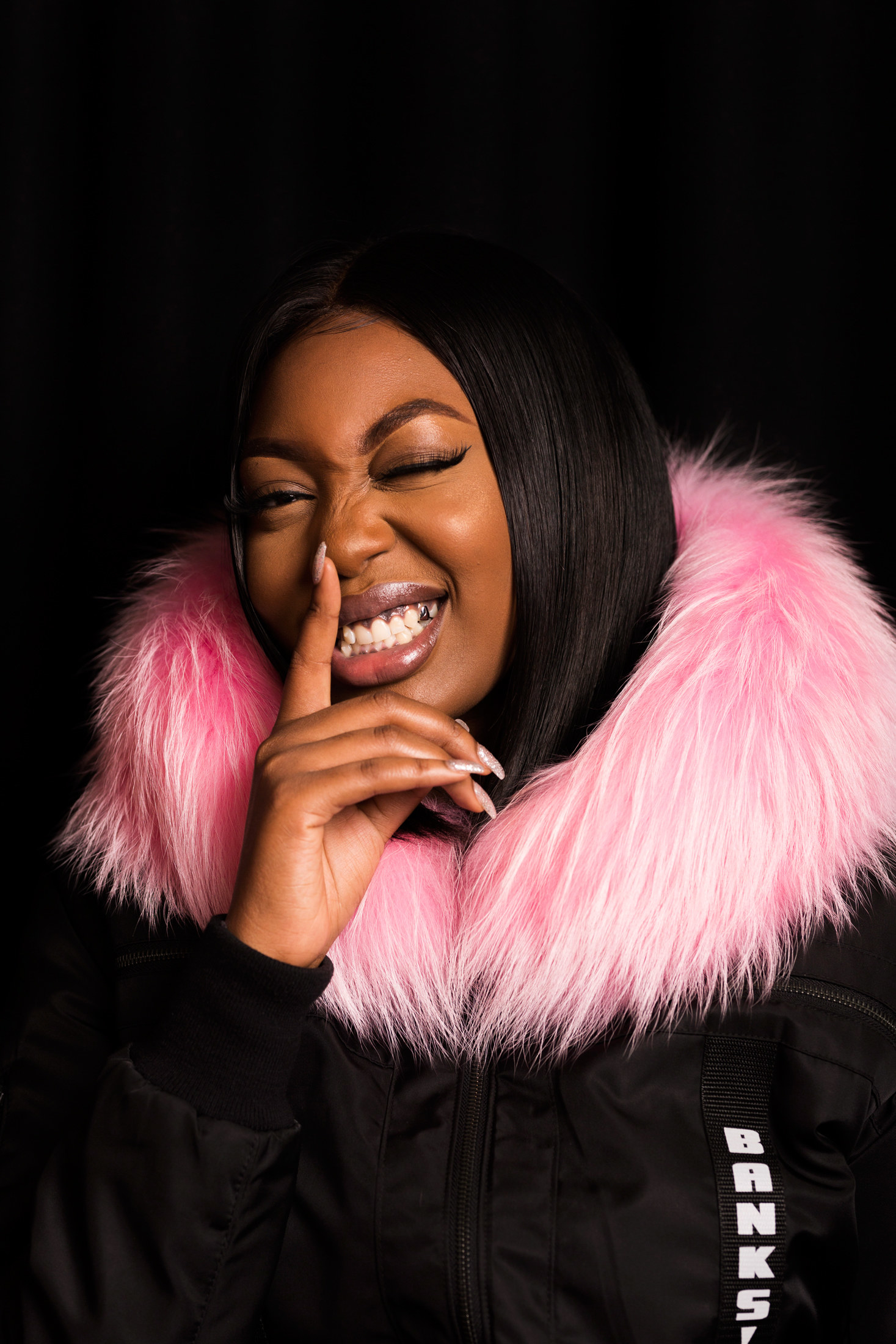
When I ask her what track she thinks best represents the scene, Ms Banks says: “Giggs, ‘Talking the Hardest’ – are you mad? That song is too much. Giggs said: ‘If you're talking the hardest / Giggs better pop up in your thoughts as an artist (jheeze).’ I wish I wrote that, that track is UK music.
“UK music means so much to me. We have people like Wretch 32, who is lyrically brilliant. The music we are making makes me proud of where I come from. I feel like for a long time we have been left out of the international music scene. But now people are realising how dope we are. We've always known how great we are and other people get it now. Everyone wants to work with us, people are inspired by us. I am very proud of the UK music scene. It's taught me to love who I am and where I am from.”
Ms Banks brings her own unique sound to the scene. “I'm a rapper, I do a little singing, I do hip-hop, grime, Afrobeats. I like to think of myself as a versatile artist. It's telling my story. I'm a woman in the rap scene and it comes with its pros and cons – being a woman has brought me a lot of attention. When I rap I sound like mandem. It's a bravado: I deliver my bars strong and deep and par up with the guys, but I am still very feminine. Some people still don't credit female rappers. But that keeps me going and it means I have someone new to recruit to the Ms Banks fan club.”

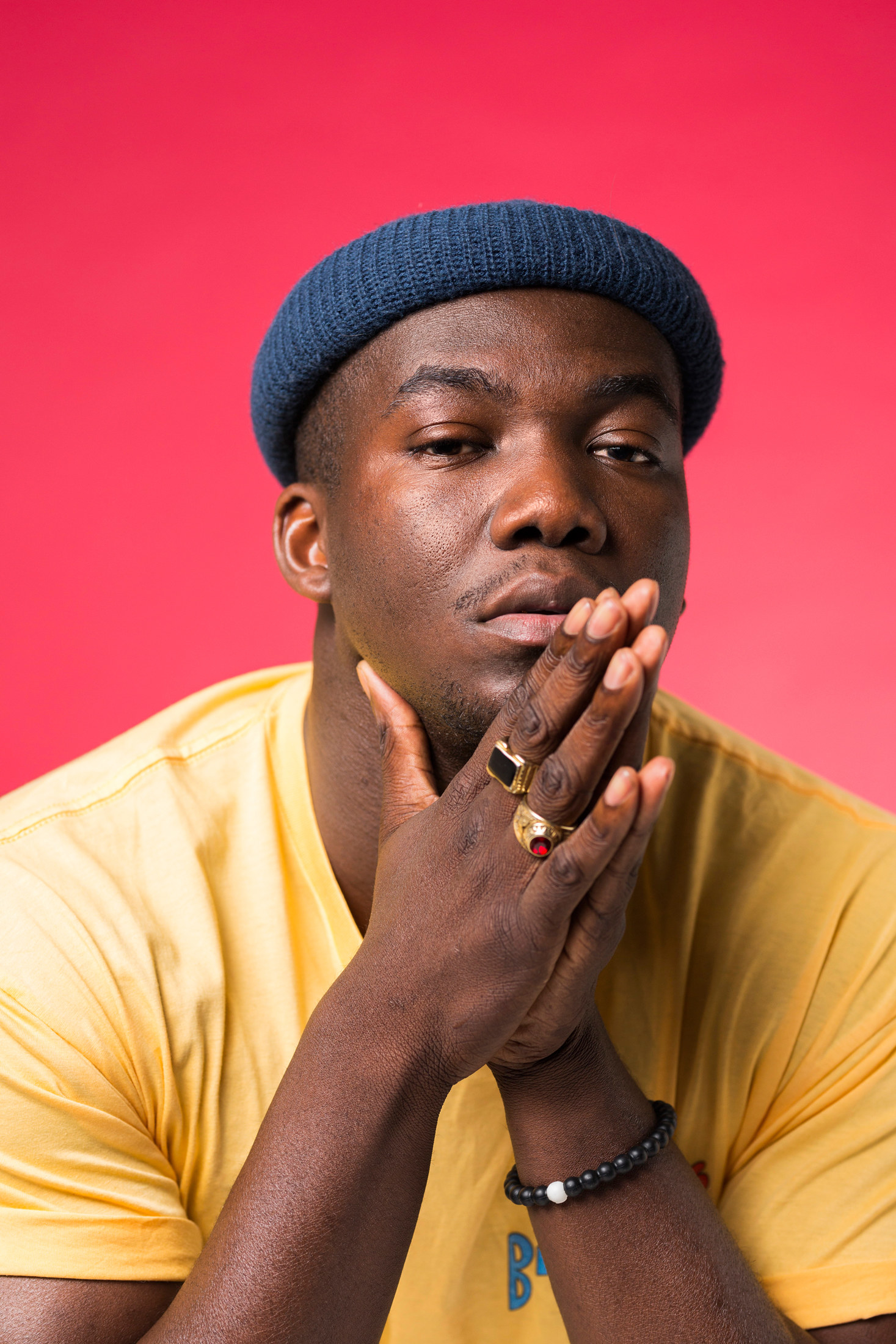
Jacob Banks
There is a certain calm that comes from being around Jacob Banks. It's a G'd up calm that seems exclusive to him. He is interesting and interested, and leaves you feeling like he could write a song about you. Asked to describe his sound, he says: “I make music, innit. I try not to quantify it, as it's not exactly genre-specific. It's storytelling. I am a storyteller. I ain't shit – none of us are, really. Sometimes as musicians we think we are more than we are. It's a crazy idea to think I can walk into a room and leave with a song that didn't exist before me. I can't be responsible for that. Music triggers memories, something that has happened to me before, a conversation. I want my music to keep people company, like they have a friend in the room.
“I was born in Nigeria and raised in Birmingham, so I have a lot of different influences, and I love Afrobeats. I love Fela Kuti, Lagbaja, and I also love Amy Winehouse. All these things come together and I try to find a home for all of them. There is pride in everything I say and put out. I rep home, I rep the UK, I rep Birmingham, I rep London. Everywhere I go, I take my story with me.”
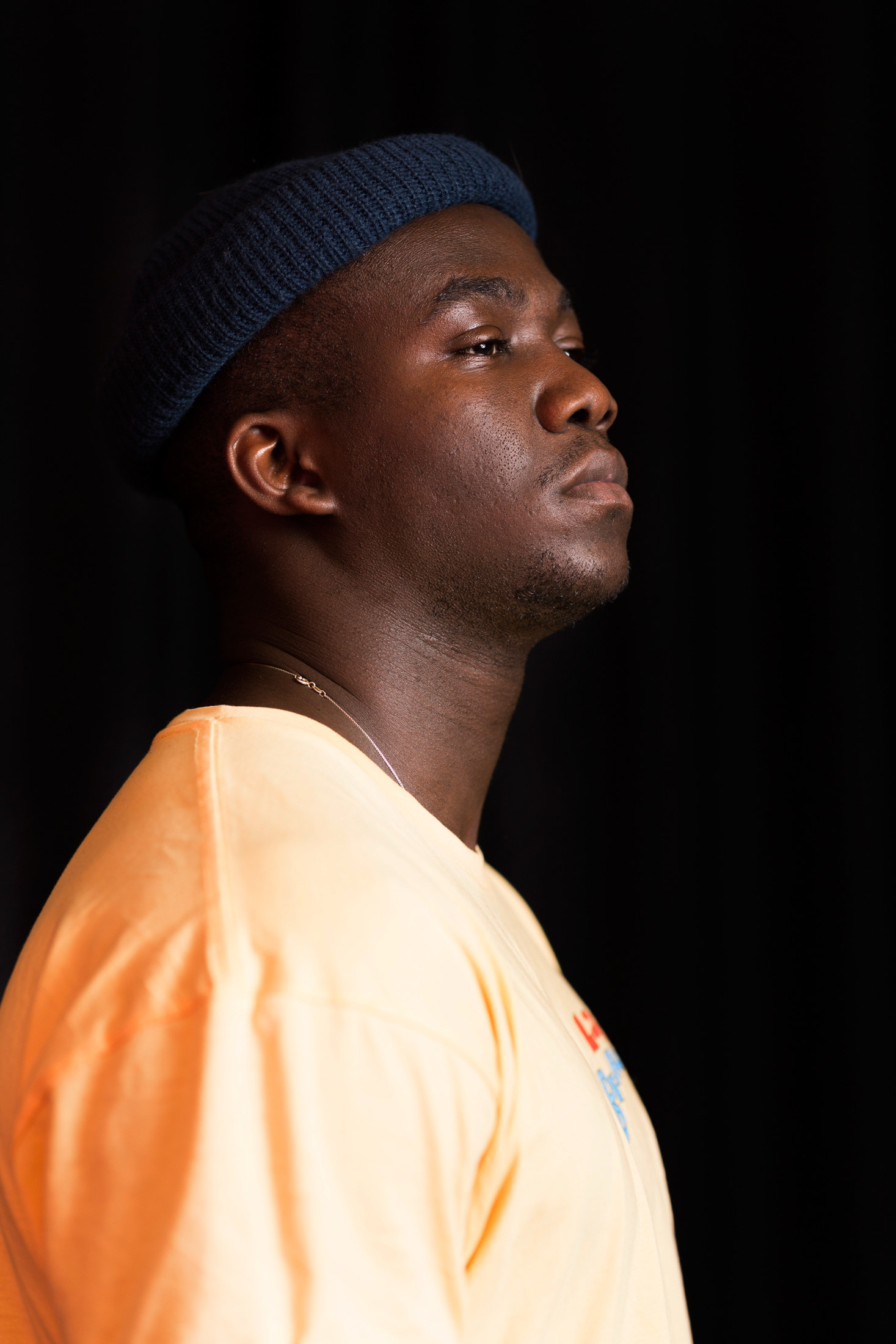
Banks started music after finishing his degree in civil engineering, a nod to his Nigerian heritage. “I started recording music because my friends would hear me sing and they wanted to play this music in their cars. So basically I just wanted to impress my friends, and I am still making music to impress my friends. I am on tour and I think anyone who listens to my songs and connects to them is someone that I can be friends with.”
“For me UK music is the best in the world,” he replies when I ask him what he thinks of homegrown music. “I think it's the best because as black British people we are not sold the dream that we can achieve anything we want. Americans are sold the dream that they can be whoever they want to be; Americans gas people. In the UK you are not gassed , so you have to be the best. It's bigger than just the artists. It's the writers, the producers – everyone is weird and wonderful here because we have to be.
“I would say UK Apache and Shy FX, “Original Nuttah” is the perfect example of what UK music is. It's a classic, it's punk, and I think the energy of UK music is punk. The energy of UK music is a big ‘fuck you’.”

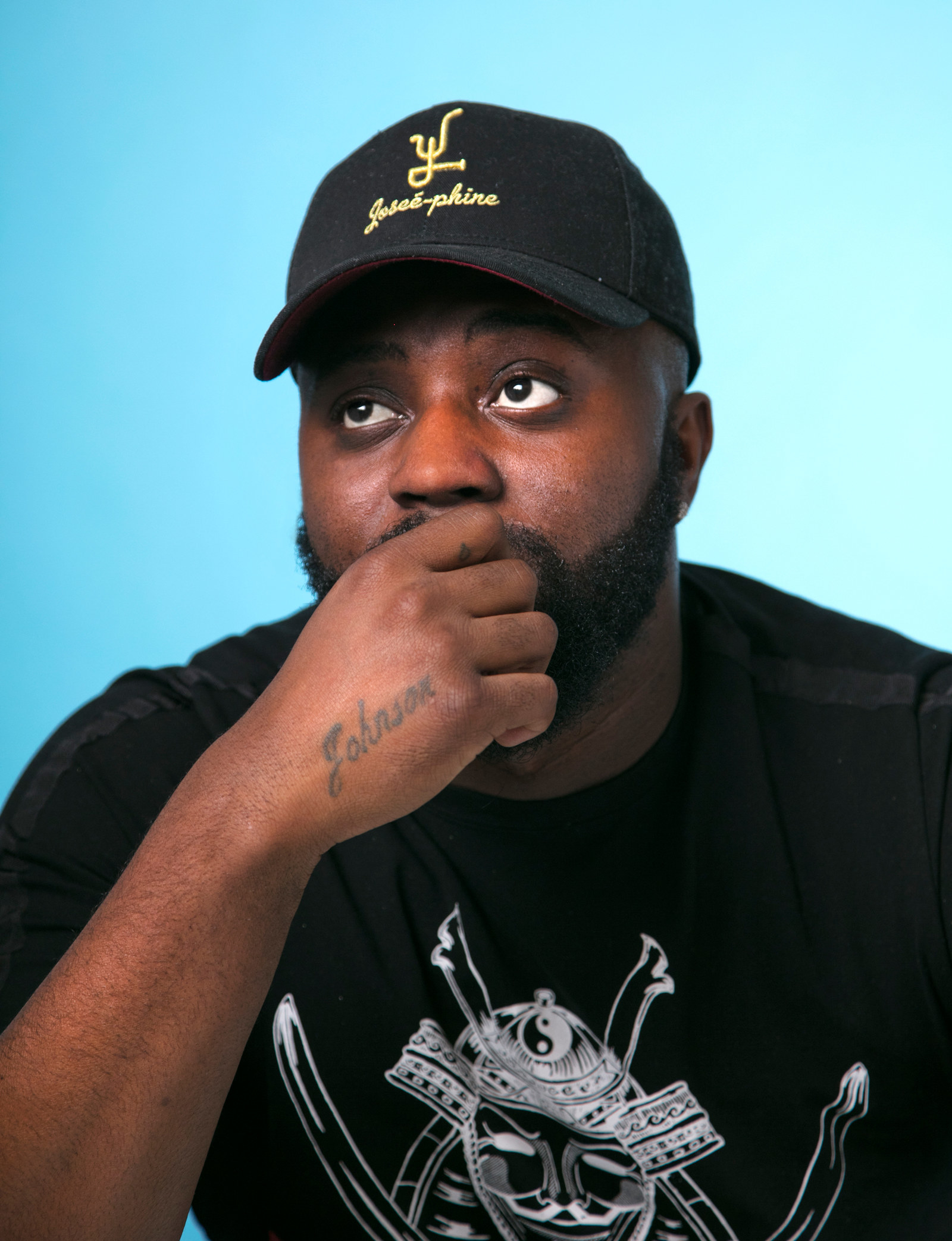
Cadet
Cadet's tracks are honest. He has a knack for making listeners feel things – a skill that makes you tune out the instrumental and really take in his lyrics. “I'm grime artist, that's how I came up. I do honest music, passionate music, just lit music. I have always been known as the guy with bars. And I started taking it seriously three years ago and it's paid off.” His songs are equal parts cheeky and emotive. “I write in my car, I listen to the instrumental and write. If I'm in a cheeky mood, I write cheeky. If I'm on an emotional rant, I write emotional. I just stay true to whatever I am feeling.”
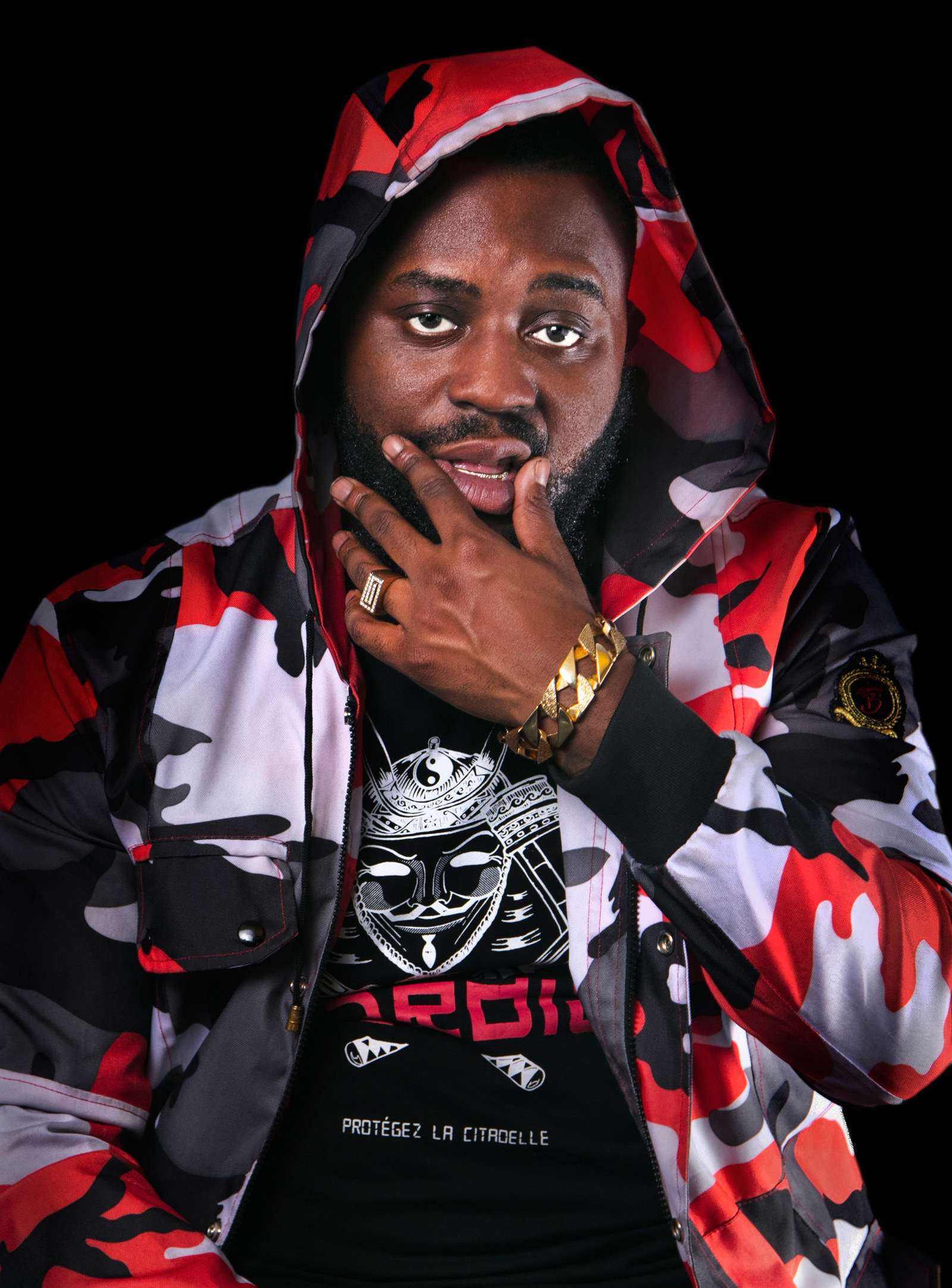
Cadet credits his SBTV Warm Up Session as the moment people really saw his talent. “Platforms like SBTV, Link Up, GRM Daily are essential in the UK scene: They allow you to have a come-up, they break down doors, and introduce people to new artists, and I'm one of them,” he explains. “These platforms aside, the internet is also great for the scene. It's so big and wide. It means that different music is not weird any more. There are no weirdos no more, because of the internet. Before the only avenue was gangsta rap, and a conscious rapper had to stay underground. But now you can be rapping about anything, now it's cool. The internet is so wide you can be yourself now. Gangsta grime and road stuff was my introduction to music. That raw essence will always stick with me, but I can rap about other things now.”
When I ask about the British scene, he says: “UK artists are doing bits. You have people like Donae'o and Shakka who have trained musical ears. You have Wretch, who is a crazy lyricist, Ghetts, who is filled with energy, and people like Stormzy and Krept & Konan who are consistent and have mad work rate and drive.
“The music we make is ours – we have a sound that is totally ours. The scene is ours, grime belongs to us. The scene is healthy. We have opportunities to become megastars.”
When asked what song he thinks shows the essence of UK music, he says: “Stormzy, ‘Shut Up’. But I do wish I wrote Kano's ‘Brown Eyes’ or Swiss's ‘Cry’ – all bangers.”

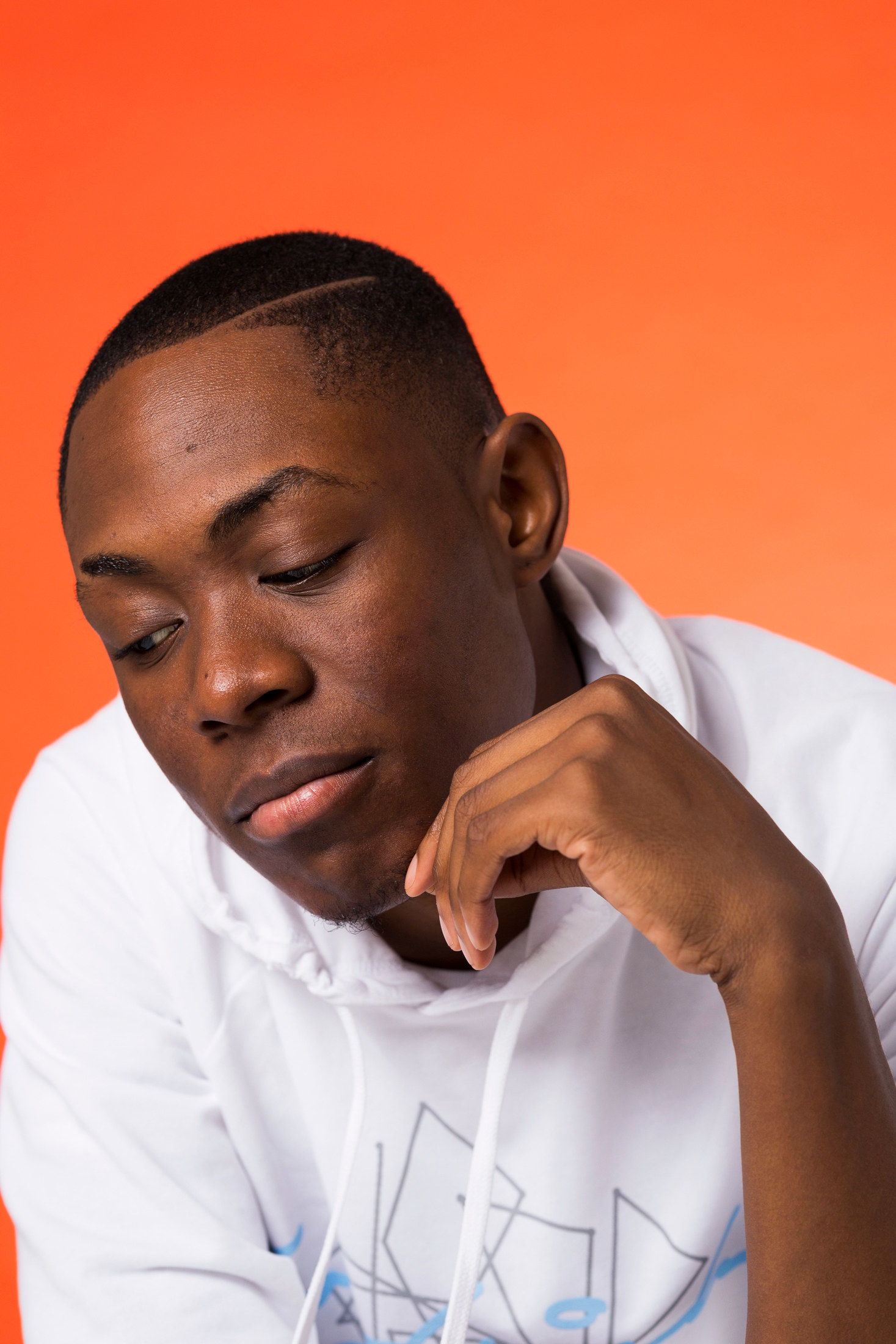
One Acen
One Acen is lively – he walks into the room with a smile planted on his face and you can't help but smile back. This air of playfulness and banter shows through his music. “It's not hard to be authentic in this industry,” he says.” I just think people are scared to be who they are. I was scared to be who I was in a way. I used to do grime, and I didn't dance in my videos, or sing like I do now. But because I thought I wasn't going to blow, I just thought I would do me. And that's when things picked up. It turns out people liked me for me.”
His latest track, “Verified”, is the perfect example of his sound: It's catchy, and a great fusion of R&B and Afrobeats. “I make melodic music. I would say I am doing new-school R&B. We have people like Angel and Shakka who are also doing a form of new-school R&B; it's not straight R&B but it's definitely based on it. R&B songs used to have rapping in them anyway, so I am the rapper and the singer now. It's a new wave.”
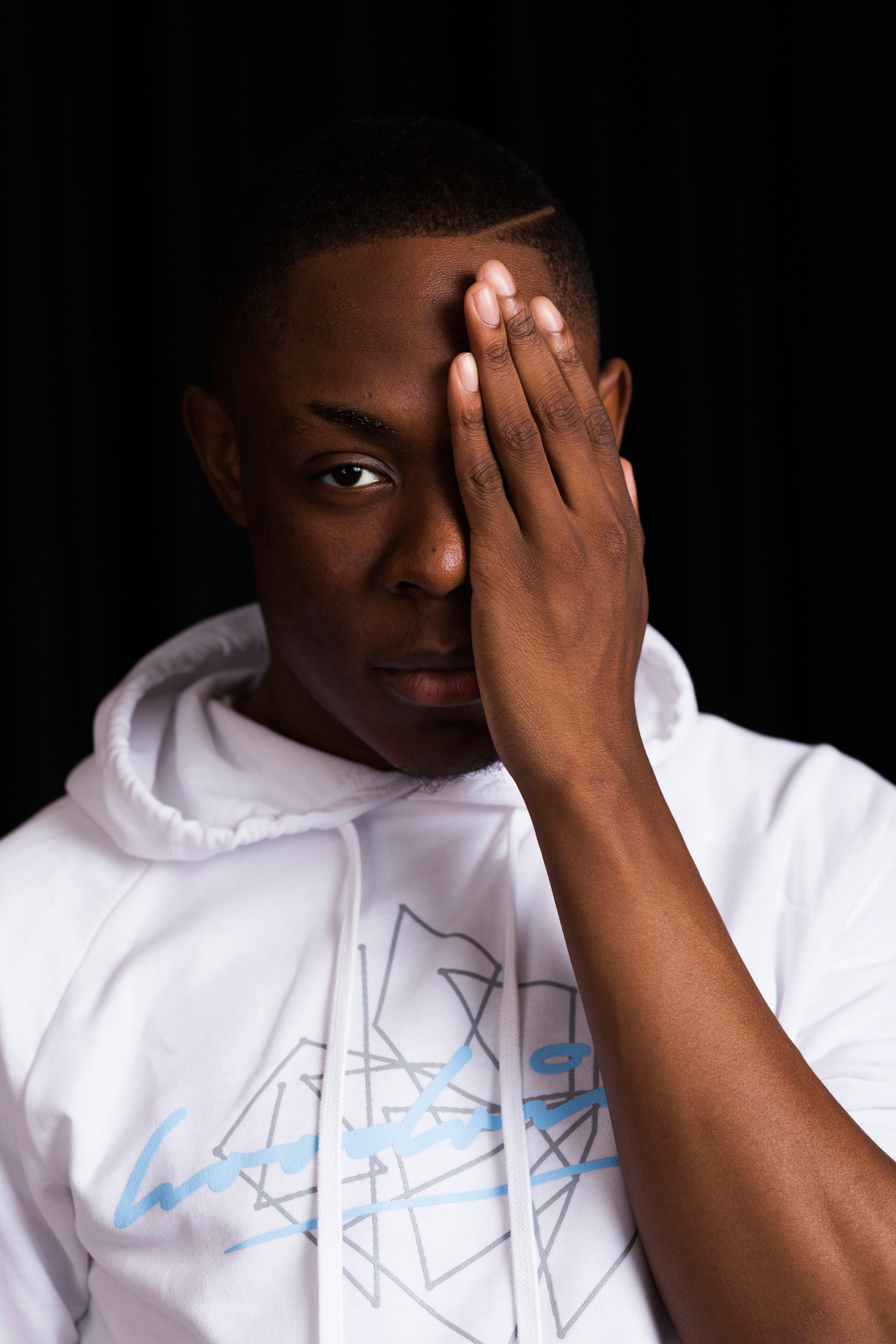
One Acen has been making music for 10 years now, but it wasn't until last year that he got his big break, with the help of Twitter. “Social media is my career. I can put out a 20-sec clip of my video and get thousands of retweets and that could turn into thousands of views. Twitter, Link Up, and GRM Daily changed my life. I put my music there and people that like UK music will see it. It allows me to penetrate the scene.”
Asked about the current state of UK music, he says: “The scene is great at the moment and it's full of good competition. You have songs like Kojo Funds, “My 9ine”, which I think is one of the best UK tracks, and we have artists like Giggs, J Hus – artists that stay true to themselves.
“The competition is good, I like competition. My music is only as good as it is because I had to get better to stand out. When there was no competition no one was getting better.”

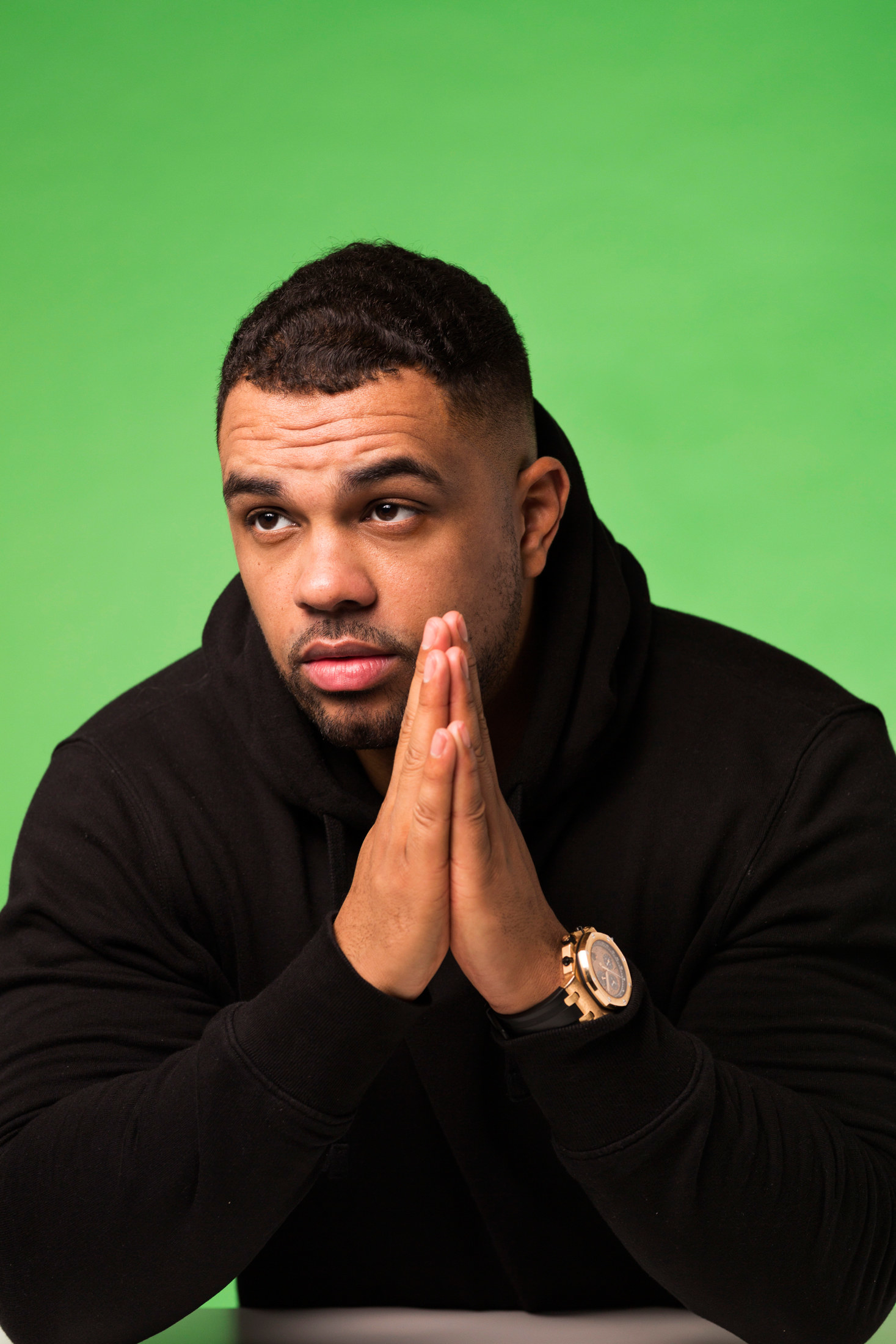
Blade Brown
Blade Brown is a rapper who commands respect. His impressive catalogue and strong underground releases prove that he is undoubtably one of the top UK rappers. “I make unapologetic trap music,” he says. “That's my sound: I speak on raw life experiences, I speak on trapping. From the start of my music career to my work on Bags and Boxes my music stays true to my core fans.”
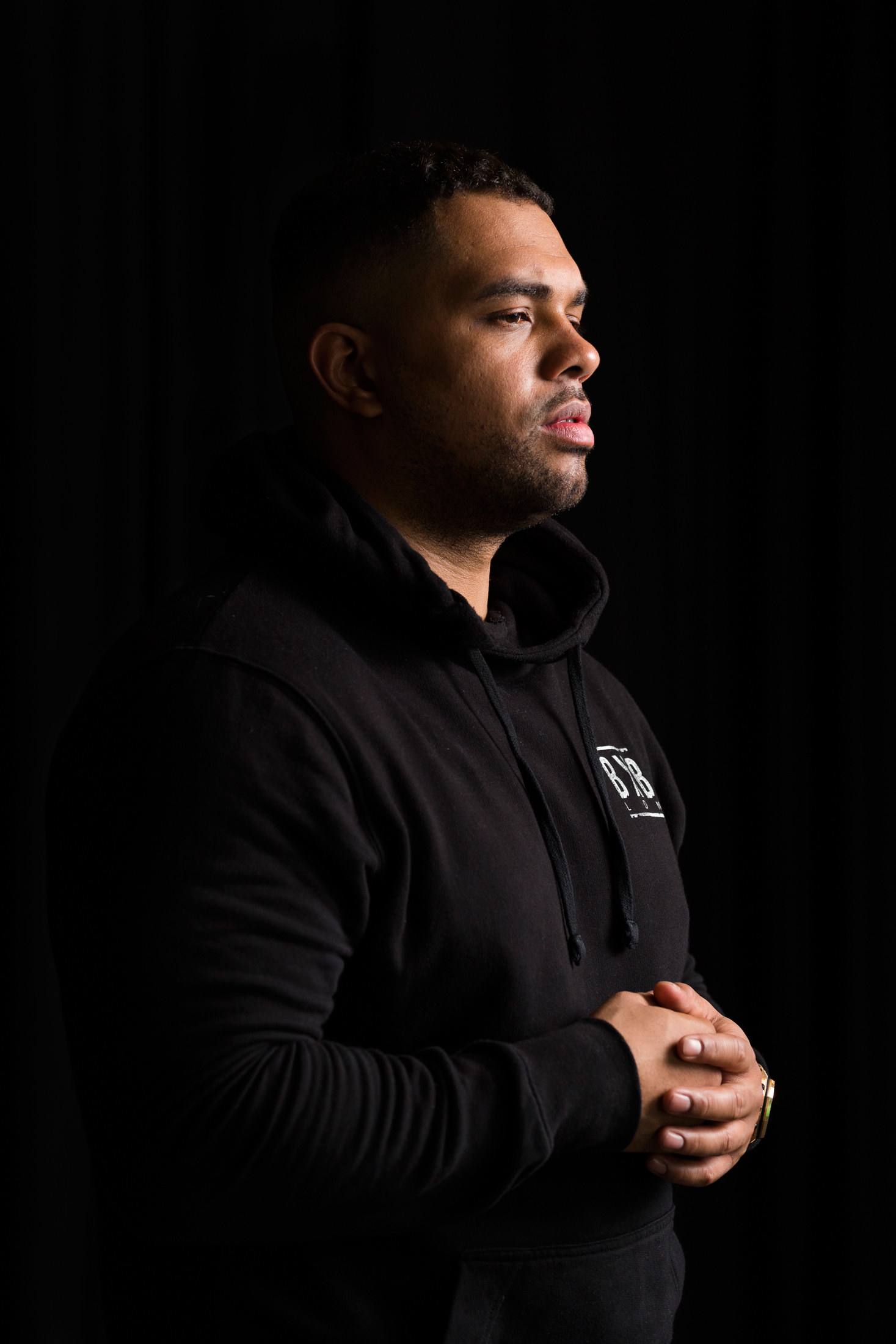
Blade has cemented his legacy in UK trap music, and it's a legacy that is built on authenticity. “I released my first mixtape in 2004, and I got a little name for myself and then I came back in 2007 with Hollow Meets Blade, with Giggs. This made me start taking music seriously.”
He continues, “I have always had a core fan base, and I don't make music to make money, that's not what drives me. I make music that I like and it just works out the other people like it too. It's not about making the biggest pop song. It's the art of rapping that motivates me.”
He chooses one of his own songs when asked what track he thinks represents black UK trap music. “I know it looks bad, but listen I picked it for a reason,” he laughs. “I picked ‘Break Bread’ because it's UK music, it's UK experiences, it's street rap. For years UK artists have been told to be more commercial and to clean it up in order to make it. But we are seeing raw songs blow, and it makes the scene more healthy. Being forced to be commercial holds music back. Raw street music does sell, as much or even more than pop music. My music does well, and so does my clothing line. I see people in Norwich or Cornwall listening to my music, or wearing my BXB clothes. That reach is still crazy to me.”

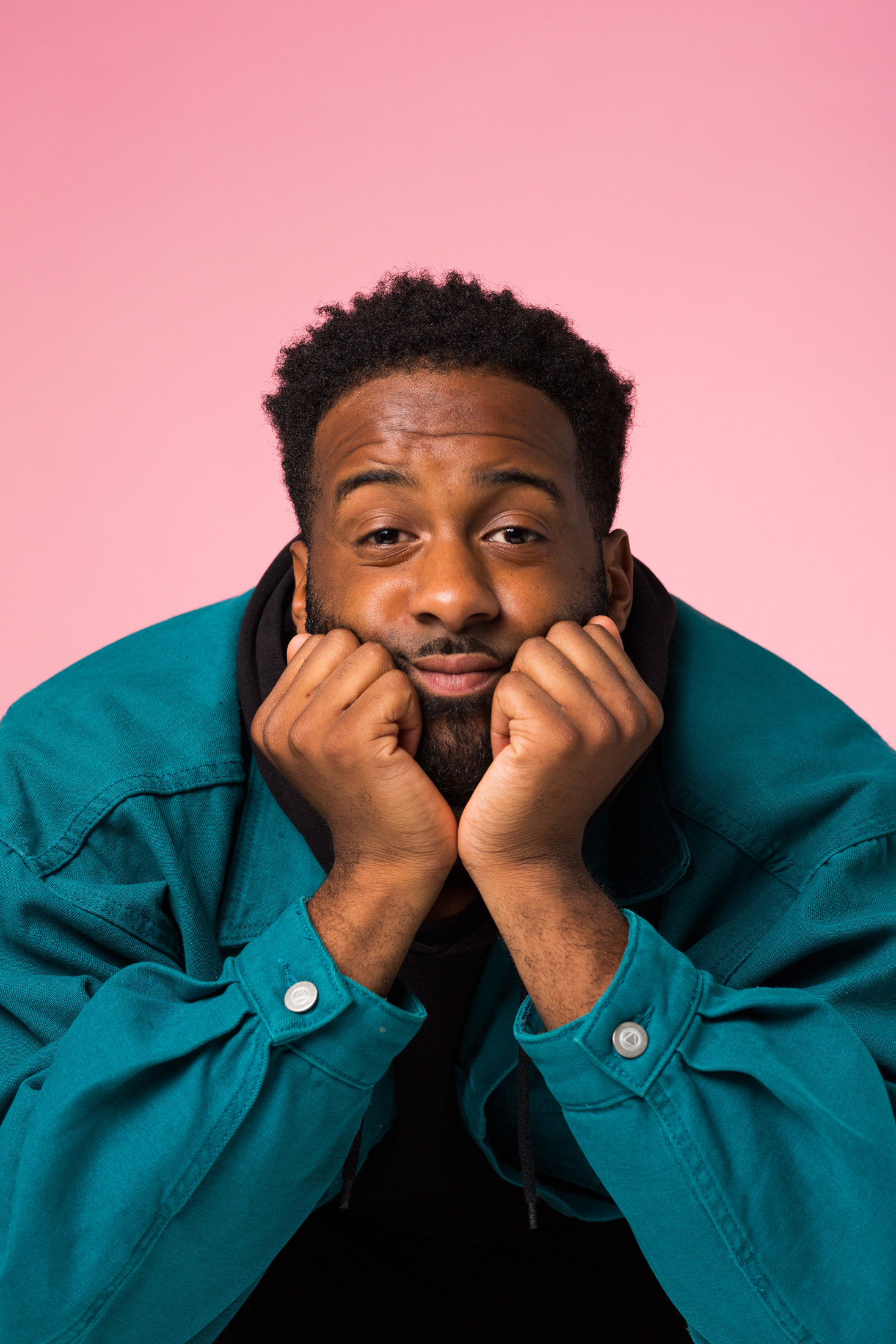
Shakka
Born and raised in west London, Shakka perfectly embodies his version of being black and British. “I grew up in Notting Hill and when I was in school the range of cultures and races were like Skittles. I grew up with people from everywhere, and it made me open to every culture and every sound. Growing up like this made me experience growth, progression, and fusion, which shows in my music,” he says. “My sound is a celebration of everything, it stems from hip-hop and R&B, but I celebrate everything that makes me feel good, which is why my influences span from Bob Marley to Daft Punk, Dizzee, and Wiley, with some Gorillaz thrown in for good measure.”
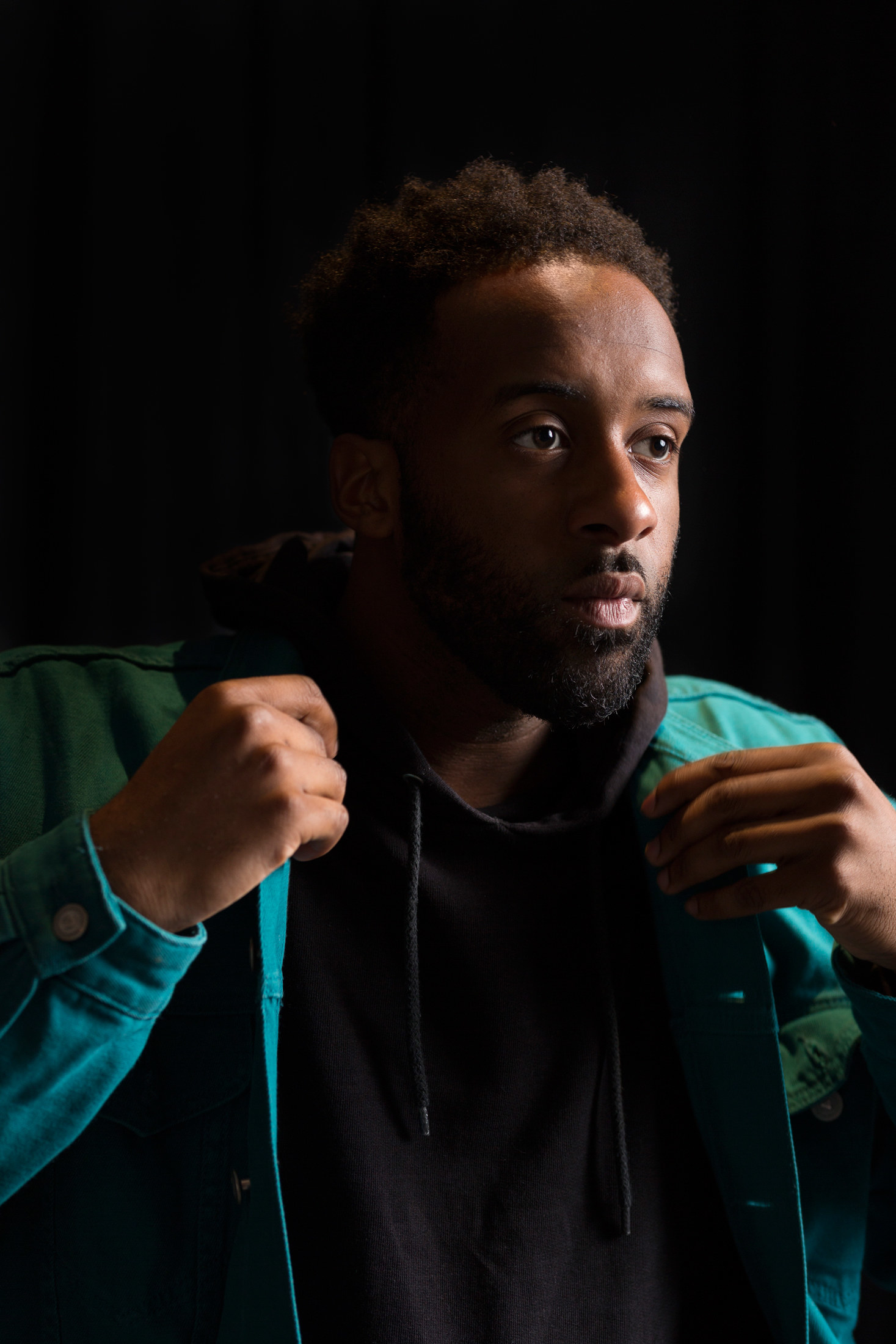
Shakka is from a musical family. His dad was a reggae musician and he has been writing music since he was 15, but his big break came when he featured on the song “Blackout” with Wretch 32. “My come-up was a weird one, because I never had a scene to be a part of. I wasn't a grime MC. I wasn't a hip-hop MC. I was singing in my accent when only one or two other people were doing it. I had to do a bunch of collaborations with different artists to be heard. ‘Blackout’, the song I did with Wretch, was a blessing for me. Because it was one of the first times when someone who is a forefather in the music scene thought it would be dope to have someone singing on his track in a British accent.”
The need to keep his accent and stay British is huge for Shakka. “I will always look up to Wiley and Dizzee – they showed me that you don't have to make music in an American accent. They made music in their own accent, back when it wasn't profitable or cool. Their stubbornness inspired a whole new generation of musicians.” This explains why Shakka picked Dizzee Rascal's “I Luv You” as one of his ultimate British tracks.
It's hard to pinpoint a set genre for Shakka's music. His top tracks “Say Nada” and “Walking With Elephants” both have R&B influences but he sings in a spitting manner. “I make R&B that caters to the lads,” he says. “I talk to the wingman, to the uni flatmates. It's about coming of age and chatting to your boys. I think it's time for UK R&B to be at the fore point. I think that's why grime is so successful, it has unity. Unity is natural for grime – the natural essence of grime is collaboration and battling. And I think when UK R&B has more collaborations it will get bigger.”

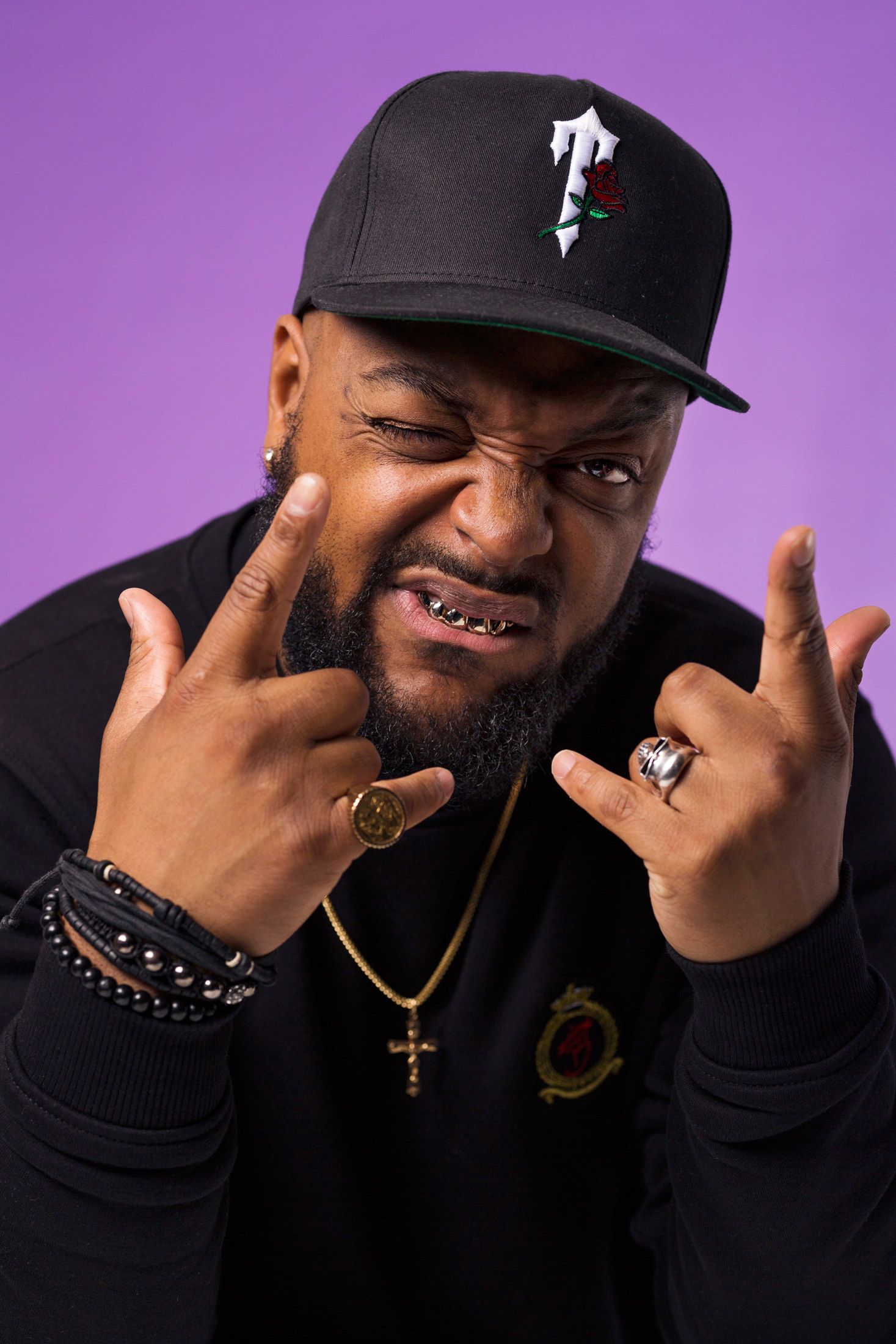
Donae'o
From his classic anthems like “Devil in a Blue Dress”, “Party Hard”, and “African Warrior” to his most recent tracks like “My Circle” and “Lock Doh”, Donae'o is known for making great music. He is a UK legend and his work as a vocalist, producer, and songwriter has made an unforgettable mark on the music and clubbing scene. He is known for blurring lines between grime, funky, Afrobeats, and dancehall and doesn't really fit into one genre. “My music is vibes, I am the vibe king – you hear my music and you will vibe to it,” he says. “I am a part of the culture, so I know what music I need to make. I make records that I want to hear when I go raving, records I want to buy, listen to, fall in love to, hang with my friends to, and dance to. I make music I enjoy.”
When I ask him how he has managed to keep making music people want to listen to, he says: “When I started making music, I had no choice but to be authentic and relevant. We didn't have a 1Xtra or anything – there wasn't a strong support for young black music. They didn't know what to do with us. We weren't making rap, and to outsiders it just sounded like loud music that black boys were shouting over. But to us it was a voice. My come-up was a need to make music in an environment that didn't support the type of music that I made, or the type of people that looked like me. So I created my own lane out of necessity.”
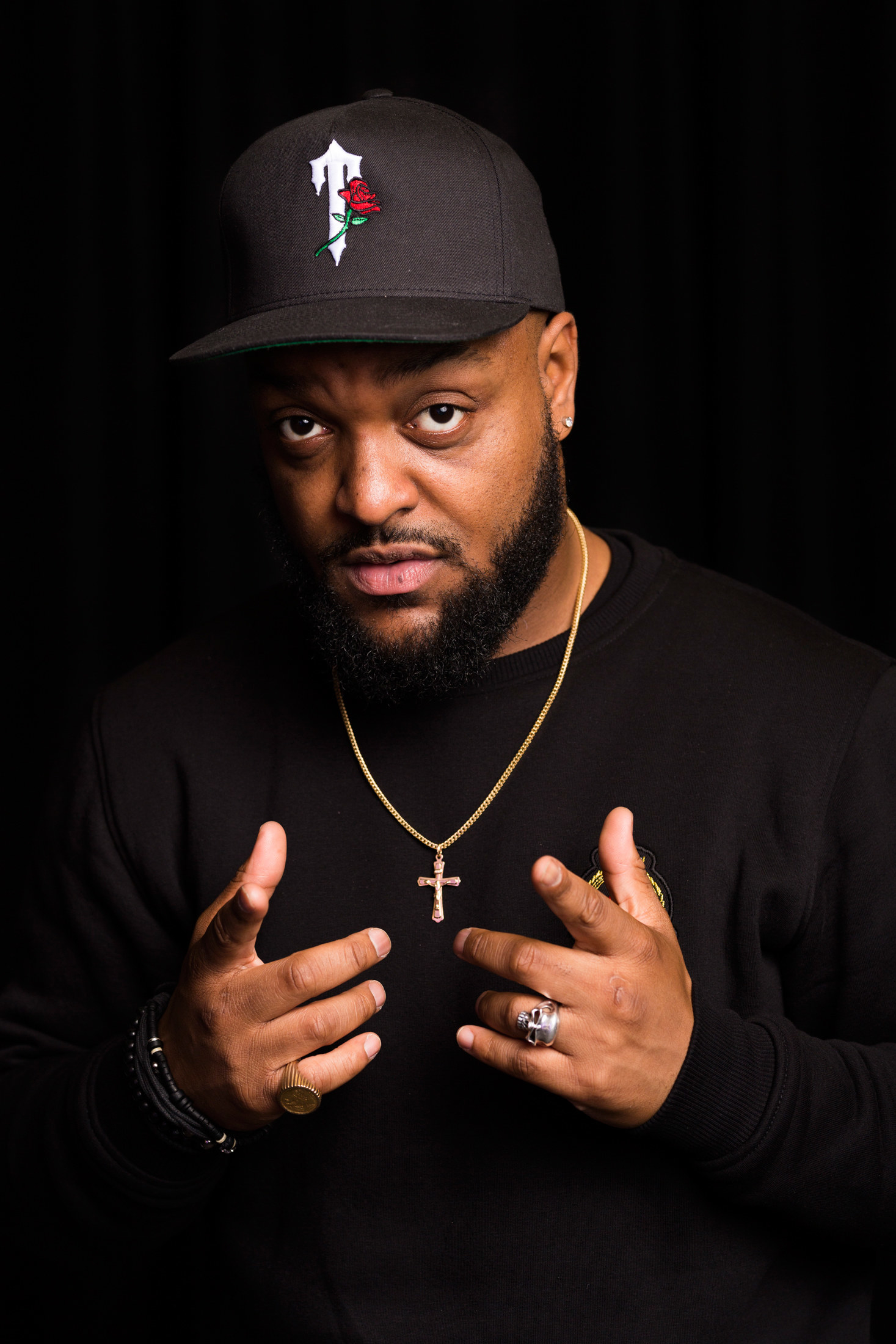
Having been in the industry for so long, Donae'o has watched the scene grow. “Do you know what's great about the industry now?” he asks. “The business side. The business side is so much better now. Channels like GRM Daily are a business now, we have award shows, and the content that is put out is amazing. We've always had quality music, but the organisation wasn't great, and it's getting better now.
“Everyone is getting really successful now. Lethal B is a millionaire, Giggs is working with Drake. Krept & Konan have been signed now, and they can bring other people in. Kids coming through can look at us and realise that they don't need to be on road. If they've got a a dream they can live it. UK artists are making the best music and being the best versions of themselves.”
Donae'o also names Giggs' “Talking The Hardest” as one of his favourite UK tracks: “That track has everything in it. It changed the landscape of music to what it is. I've always thought he sounds like a basement artist with a British voice, he structures his raps like a grime MC, and his words are of a rapper. I think every song now has elements of that song in it.”
The pictures in this article will be exhibited at Boxpark Croydon from 1 to 29 November 2017 and at Boxpark Shoreditch from 1 December to 5 January 2018.


